In my childhood days there were two television shows I never wanted to miss: “Jeux Sans Frontières” and “Einer wird gewinnen” (“One will win”). The first was a kind of Olympics where teams from different European cities competed against each other, the second a quiz show in which the name of the show was deliberately chosen so that, at least in German, the acronym EWG stood for the show as well as for the European Economic Community.
I cannot say whether I was born a European and therefore liked these programmes or whether these two entertainment shows turned me into one. But I still remember very well, what particularly fascinated me: It was great for me to see and hear people giving my mother tongue the flavour of their own languages. The candidates in these shows seemed both alien and lovable, exotic and familiar, distant and close, and above all: so interesting.

Of course, I was also enthusiastic about the crazy competitions that the game designers of “Jeux Sans Frontières” always came up with. And the quiz questions by Hans Joachim Kulenkampff, often staged as short plays, probably thrilled me because they triggered something in me which today we might call an eagerness to learn. But the most profound impression was the feeling to belong to a much bigger family than I had previously thought. These strangers weren’t strange at all and on top of that, my self-perception changed, too, because Mr Kulenkampff, the likeable German gentleman, did something in every programme which violated all the clichés and stereotypes of the stiff, orderly German: he always overran his broadcasting time. A relaxed German who didn’t give a damn about the rules. That was fantastic!
Since then, I have been working as an interpreter for the European institutions for almost twenty-five years, and when I think back to that time when the European idea was a real promise not only on television but also in reality, a beautiful utopia which nobody seriously put into question, then I often become nostalgic – and sometimes angry.
At least I was lucky enough to be able to work under Jacques Delors’ presidency of the Commission when the European unification progressed with seven-league boots in but a decade – when the European Communities first became one Community and finally a Union, when mutually blocking customs areas turned into a single market, when hundreds of different notes and coins were replaced by one currency.
But what happened then? Why did everything suddenly get stuck after the turn of the millennium? What happened to the beautiful post-war dream that the peoples of Europe, who for centuries had repeatedly inflicted war on each other, would unite? Not to become uniform, but united on an equal footing in order to survive economically and culturally, both internally and externally?
Word has probably spread by now even to the furthest European village that the era of nation states came to an end about half a century ago. So when will we finally get serious about our “Jeux Sans Frontières”, lift it from our TV-screens into reality, give ourselves a genuine constitution, place our European policy on a solid, common political foundation that will empower us to act on a world scale and makes us capable of achieving and implementing all the great things we so far only boastfully proclaim?
“One will win” is no longer a format for the future. We Europeans can only win the future if we do it all together. Unless we stand united, we will be crushed between increasingly aggressive and authoritarian blocs that are at best interested in our pretty countryside, our castles and churches, and perhaps even a few of our inventions and patents, but not in our ideas about democracy, rule of law and human rights, nor in our commitment to workers’ rights and social balance, to corporate responsibility and sustainable economic management, and certainly not in our ideas about freedom, linguistic and cultural diversity and pluralism.
To preserve, develop and defend all this is our common cause, our European res publica!
What on earth are we waiting for?
By Wolfram Fleischhauer, Author & interpreter
born in Karlsruhe, Germany www.wolfram-fleischhauer.com
His new novel The SEA (original „Das Meer“) is going to be published in English in spring 2019. The German original has already become kind of a cult-book skilfully addressing global fisheries practises out of control and conflicts between national interests and a common fisheries policy by the European Union.


